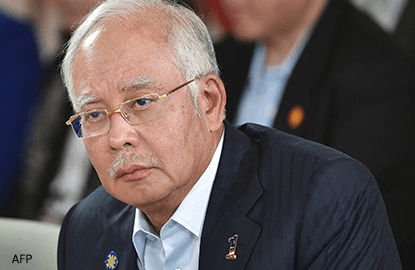
This article first appeared in The Edge Financial Daily, on April 13, 2016.
KUALA LUMPUR: Prime Minister Datuk Seri Najib Razak opines that his cabinet reshuffle on July 28, 2015, which involved the sacking of former deputy prime minister Tan Sri Muhyiddin Yassin, lent support to the world’s longest bull market to continue on Bursa Malaysia.
In his keynote address at Invest Malaysia 2016 yesterday, Najib told the participants including foreign fund managers that the then positive stock market sentiment showed that investors viewed “strong leadership, political stability and a credible economic plan” as crucial criteria for investments.
“It’s very clear that the markets like strong leadership, political stability and a credible economic plan. Now I know that there are some who would like you to think that our economy is in trouble.
“Some who against their own principles even asked for foreign intervention! Some who ought to know better have been talking Malaysia down. Indeed, they do know better. Malaysia is sustainable at the core. Because the facts — including those that I have just outlined to you — are indisputable,” Najib said.
In highlighting that the fundamentals of the domestic economy remain intact, Najib pointed out that between 2009 and 2015, gross national income had increased nearly by 50%, with 1.8 million jobs created while maintaining low inflation. Foreign direct investment has been growing at more than 22% a year.
Last year’s gross domestic product (GDP) growth was at 5%, slightly higher than forecast during a time of turmoil on the global front, making Malaysia one of the fastest-growing countries in the region, said Najib.
The Organisation for Economic Co-operation and Development forecasts Malaysia to average that same healthy growth rate, far higher than the global average, over the next four years, according to his speech.
The overall size of the capital market expanded to RM2.8 trillion in 2015, standing at two-and-a-half times Malaysian GDP, that’s up 150% since 2009 when Najib took office. The Malaysian capital market remains an important facilitator for financing business growth with RM90 billion raised in the primary market last year, a level consistent with previous years.
Najib, who is also finance minister, also took the opportunity to mention that the ringgit had rebounded strongly against the US dollar. “The ringgit is Asia’s best-performing currency this year to date. This may surprise my political opponents, who said that if I continued in my job the ringgit would fall to 4.80 to the [US] dollar. Now it’s 3.88 to the dollar!” he exclaimed.
“As Bloomberg reported just under two weeks ago, overseas inflows into Malaysia are the biggest in Southeast Asia and Kuala Lumpur has the lowest volatility among the region’s markets,” he said.
The prime minister urged the crowd to join the foreign investors, who have already bought RM5.5 billion worth of domestic stocks in the first quarter of 2016.
Najib also highlighted that the government had virtually eliminated absolute poverty to less than 1%. The income of the bottom 40% households has increased by a compound annual growth rate of 12%, even higher than the national average of 8%, since 2009 and through the implementation of minimum wage legislation, the government has lifted 2.9 million people immediately out of absolute poverty.